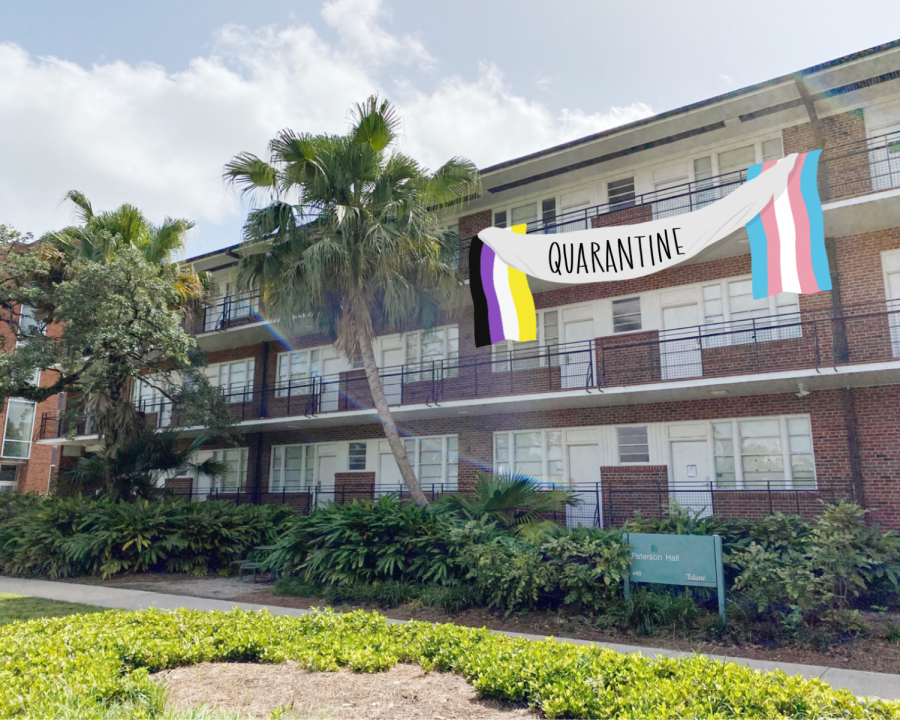Coronavirus precautions should not come at expense of inclusivity
For several years, Paterson Residence Hall has served as the home for communal bathroom-style gender-affirmative housing on Tulane’s campus, as well as the Kaleidoscope Residential Learning Community. With testing for the coronavirus and the quarantine of infected students being relegated to Paterson, however, access to these amenities have inevitably been impacted.
Started in 2017, Kaleidoscope is an RLC focused on social justice and identity topics, based on D. Scott Tharp’s theoretical framework for designing social justice education curriculum. Based in a partnership between Housing and Residence Life and the Carolyn Barber-Pierre Center for Intercultural Life, Kaleidoscope’s offerings include shared dinners, a book club and a required Tulane Interdisciplinary Experience Seminar. With Paterson effectively out of commission as a live-in dorm, both access to Kaleidoscope and to gender-neutral communal bathrooms are in jeopardy. Although students in any suite-style dorms can request a gender-affirmative housing suite and pull in any roommates of their choosing in order to ensure that they are comfortable, freshmen by and large do not benefit from this advantage. The only suite-style first-year student dorm is Wall Residence Hall, which requires students to be accepted into the Honors RLC in the first place.
In spite of this seemingly unstable situation for gender-marginalized students, Tulane has neglected to say anything about these struggles. The official website for Kaleidoscope still states that it will be housed in Paterson for the 2020-21 academic school year. There has been no additional information offered for students. In addition to the lack of accessible information for students, the Tulane administration never bothered to clarify why Paterson was the ideal candidate for coronavirus testing when other dorms were easily available. No matter the specific situation, there is no reason for access to crucial information to be limited and hidden behind red tape.
The bottom line is that resources in place to ensure the comfort and safety of queer and other marginalized students should not be leveraged in order to ensure the general safety of the Tulane community. As a private university with a sizable endowment that is clearly capable of pouring money into resources for students when needed — as shown by the temporary classrooms, Dining Pavilion and online learning resources — it is disappointing that the university leaves behind the students who often need these resources the most. The same could be said of earlier measures as well. Tulane’s plans to send students home in the spring arguably did not give ample time for students to go home. For many queer students, on-campus living is an escape from unsafe living situations, complicating their departure and compelling them to return.
Tulane’s administration must do better across the board for marginalized students. Their consistent failure to do so results in the same students doing the brunt of the work to improve campus and having to figure out the issues that they should not even encounter in the first place.
Your donation will support the student journalists of Tulane University. Your contribution will allow us to purchase equipment and cover our annual website hosting costs.




